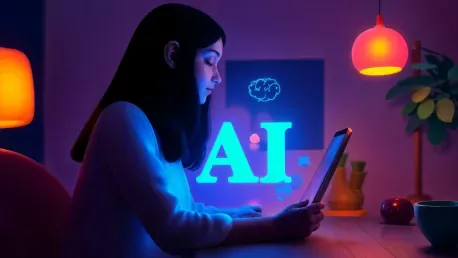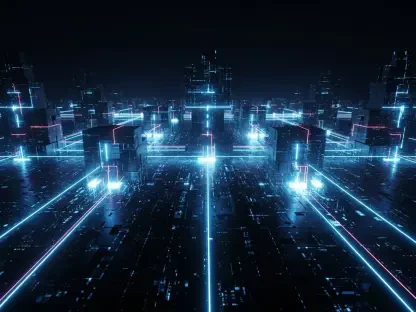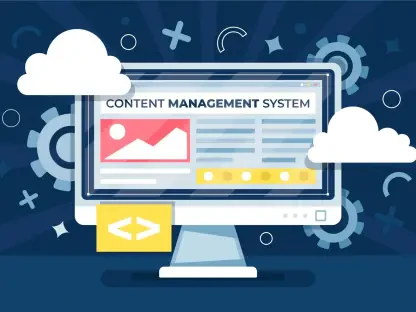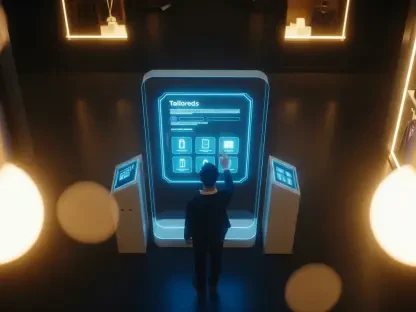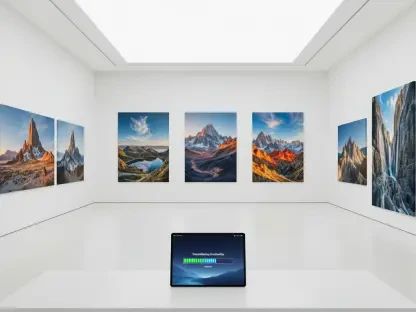The realm of creative writing is experiencing a tectonic shift with the advent of Artificial Intelligence (AI). Particularly in the genre of science fiction, questions arise about AI’s potential to match or even enhance the storytelling prowess of human authors. This article delves into the fascinating intersection of AI and human creativity, exploring how they can collaborate to craft the next great sci-fi stories. As AI technology continues to evolve and seep into various facets of our lives, its impact on creative writing grows increasingly significant.
The Rise of AI in Content Creation
AI’s Growing Influence
AI’s influence is already evident in various content creation domains, from marketing to blogging and even scriptwriting. Advanced AI tools like ChatGPT, Jasper, and Sudowrite have been designed to generate text that closely mimics human writing styles. These tools are not only limited to generating short content but are also capable of crafting entire stories and novels with minimal human intervention. The sophistication and adaptability of these AI models allow them to produce content that ranges from simple blog posts to intricate narratives rich in detail and complexity.
AI technology’s rapid progression has enabled it to emulate human writing with increasing accuracy, allowing it to produce content that is virtually indiscernible from that created by human writers. These advancements have significant implications for the creative industries, raising questions about the future role of AI in writing. As AI becomes more adept at understanding context, tone, and nuance, its applications in content creation are becoming ever more diverse and powerful. Such developments have instilled both excitement and anticipation amongst writers and technologists alike, eager to explore the vast possibilities of AI-assisted creative writing.
Experimental Projects and Capabilities
Several experimental projects underscore AI’s potential in fiction writing. For instance, “1 the Road” by Ross Goodwin, an AI-written travelogue, and AI Dungeon, an interactive storytelling platform, exemplify how AI can generate unpredictable narratives. With the capabilities of GPT-3 and GPT-4, authors have already started using AI to co-create short stories and full-length novels, experimenting with AI’s prowess in producing sci-fi content. These projects demonstrate AI’s ability to synthesize various data streams and outputs to form coherent and often thought-provoking stories.
The innovation behind these experimental projects lies in their approach to blending AI with human creativity. By leveraging AI’s computational abilities, writers can explore new narrative structures and concepts that might otherwise remain unexplored. Collaborations such as these highlight AI’s growing role as a versatile tool for enhancing human creativity. Moreover, the success of these projects has prompted further investigation into the practical applications of AI in literature, sparking discussions on the potential future of AI-assisted writing.
Essential Elements of a Great Sci-Fi Story
World-Building and Futuristic Themes
Science fiction demands immersive world-building with unique civilizations, futuristic technologies, and alternate realities. Masterpieces like Asimov’s Foundation series and Frank Herbert’s Dune have set high standards for detailed, believable future settings. Additionally, sci-fi often delves into advanced technologies, space exploration, AI, time travel, and dystopian futures, speculating on scientific possibilities and their ethical implications. These elements are crucial for engaging readers and transporting them to worlds vastly different from their own.
World-building requires meticulous attention to detail to create a sense of realism and credibility within the fantastical. The integration of futuristic themes within these worlds must be seamless to avoid disrupting the reader’s immersion. Great sci-fi authors master the art of weaving intricate settings with compelling narratives that confront existential questions and challenge societal norms. Through these explorations, sci-fi offers not only entertainment but also profound insights into the human condition and its possible futures.
Philosophical Depth and Character Development
A compelling sci-fi narrative also prompts deep reflection on philosophical questions about humanity and technology. Works like Philip K. Dick’s “Do Androids Dream of Electric Sheep?” explore themes of reality, identity, and consciousness. Furthermore, well-developed characters, despite the futuristic themes, are crucial; they must exhibit genuine emotions, motivations, and struggles, highlighting interplay with advanced technology. These elements imbue sci-fi stories with emotional depth, making them resonate deeply with readers.
Philosophical depth in sci-fi entails the exploration of complex ideas that push readers to question their preconceived notions and examine the implications of technological advancements. Characters serve as the lens through which these philosophical themes are examined, providing a personal and relatable context to abstract concepts. The interplay between character development and philosophical inquiry sets the foundation for memorable sci-fi narratives that captivate and provoke thought. This connection underscores the importance of maintaining a balance between imaginative speculation and relatable human experiences.
AI’s Role in Sci-Fi Storytelling
Strengths of AI
AI offers several strengths in sci-fi storytelling, including speed and efficiency, enabling rapid drafts and continuous content generation without the hindrance of writer’s block. Additionally, AI’s ability to analyze extensive repositories of existing sci-fi literature allows it to generate unique plot ideas by blending disparate themes. Its lack of emotional bias can result in highly unconventional narratives, potentially leading to innovative storytelling. These capabilities make AI an invaluable tool for writers seeking to streamline their creative process.
The efficiency of AI in generating content is particularly advantageous for writers grappling with deadlines or looking to produce high volumes of material. Moreover, AI’s analytical prowess enables it to identify patterns and trends within existing literature, providing a wealth of inspiration for new stories. This computational strength allows AI to act as a powerful assistant, facilitating the ideation and drafting phases of writing. By leveraging AI’s unique strengths, writers can explore uncharted territories in their narratives and revolutionize traditional storytelling approaches.
Collaborative Assistance
Rather than competing with human authors, AI’s role could be highly collaborative. By brainstorming, suggesting plot twists, refining dialogues, and helping to overcome writer’s block, AI can significantly enhance the creative process. Many writers already use AI-assisted tools to streamline their writing, highlighting AI’s potential as a creative aide. This collaborative approach allows AI to complement human ingenuity, combining computational precision with emotional insight to create richer stories.
The collaborative potential of AI extends beyond mere assistance, offering possibilities for co-creation that blend human and artificial narratives seamlessly. AI can act as an ever-present brainstorming partner, offering suggestions and alternatives that might not occur to the human writer alone. This synergy ensures that both human creativity and AI’s unconventional insights contribute equally to the storytelling process. As writers become more comfortable integrating AI into their workflow, the boundaries between human and machine-generated content may blur, leading to novel and groundbreaking sci-fi narratives.
Challenges and Limitations
Emotional Resonance and Originality
Despite its strengths, AI faces significant limitations. It lacks genuine human emotion, often resulting in characters that feel artificial. Furthermore, AI’s reliance on training data makes it difficult to produce deeply original and convention-breaking content, rendering its output more derivative. These limitations highlight the innate differences between human writers and AI, emphasizing the unique strengths of each.
AI’s inability to experience emotions firsthand means its portrayal of human feelings can sometimes lack authenticity, making it challenging to create characters with genuine emotional depth. This disconnect can lead to narratives that fail to resonate on a deeply personal level with readers. Furthermore, AI’s reliance on pre-existing data results in the replication of themes and concepts already present in the literature, posing a challenge to the creation of truly original content. These constraints underscore the need for human intervention in AI-generated writing to ensure the emotional and creative aspects of storytelling are fully realized.
Narrative Coherence and Human Oversight
While AI can manage short stories, maintaining narrative coherence in full-length novels is challenging. AI struggles with consistent character arcs, logical plot progression, and overall story continuity. Additionally, even the most advanced AI-generated content requires human editing to fully engage and resonate with readers, necessitating a human touch for meaningful storytelling. These limitations reveal the importance of human oversight in the creative process.
Narrative coherence is crucial for sustaining the reader’s interest and investment in the story, and AI’s difficulties in maintaining consistency can undermine this. Complex character development and intricate plotlines require a level of intuitive judgment and creative foresight that AI has yet to master. As a result, human writers are indispensable for refining and contextualizing AI-generated content. This symbiotic relationship ensures that the strengths of both AI and human creativity are utilized to produce balanced and compelling sci-fi narratives.
The Future of AI and Human Collaboration
Enhancing Human Creativity
The future of storytelling may lie in a synergistic partnership between AI and human writers. AI can generate story prompts, help overcome writer’s block, refine language, and experiment with multiple endings. This collaboration could leverage AI’s computational power to enhance human creativity, leading to new and innovative sci-fi masterpieces. As writers become adept at using AI tools, the integration of these technologies may revolutionize traditional narrative structures.
AI’s contributions to the creative process extend beyond mere assistance, offering possibilities for genuine co-authorship that blends human intuition with machine logic. This partnership could unlock new narrative possibilities, enabling writers to explore concepts and structures previously limited by human constraints. The infusion of AI into creative workflows represents a paradigm shift in storytelling, where the computational prowess of AI complements the imaginative insights of human authors. As AI technology continues to advance, its role in co-creating immersive and thought-provoking sci-fi narratives will likely expand.
Transformative Potential
AI has the potential to transform interactive fiction, gaming, and virtual reality by creating dynamic, personalized narratives. While AI-generated books may grow more common, the demand for human-authored literature is likely to persist. Ethical concerns around AI-generated stories remain unresolved, presenting challenges and opportunities for the future integration of AI into the literary world. The transformative potential of AI in interactive mediums marks a new era in storytelling, where personalized experiences become the norm rather than the exception.
The integration of AI into interactive fiction and gaming promises significant advancements in creating individualized narratives tailored to the preferences and actions of the reader or player. AI’s adaptability can result in dynamic storylines that evolve based on user choices, offering a level of engagement unprecedented in traditional literature. However, the ethical implications of AI-generated content, such as issues of authorship and originality, require careful consideration. As we navigate these challenges, the future of AI in creative writing will be shaped by our ability to harness its potential while addressing its limitations.
A New Era of Storytelling
The world of creative writing is undergoing a significant transformation with the rise of Artificial Intelligence (AI). This shift is particularly evident in the science fiction genre, sparking debates about whether AI can match or even enhance the storytelling skills of human writers. This article explores the captivating intersection of AI and human creativity, examining how they can work together to produce extraordinary sci-fi narratives. As AI technology continues to advance and integrate into more aspects of our daily lives, its influence on creative writing becomes increasingly important. The potential for AI to generate innovative story ideas, develop intricate plots, and create compelling characters is vast. Human writers can harness AI as a tool to push the boundaries of their imagination, leading to a new era of storytelling. The collaboration between artificial and human creativity could result in a unique blend of perspectives, enriching the literary world with fresh and diverse sci-fi stories.
